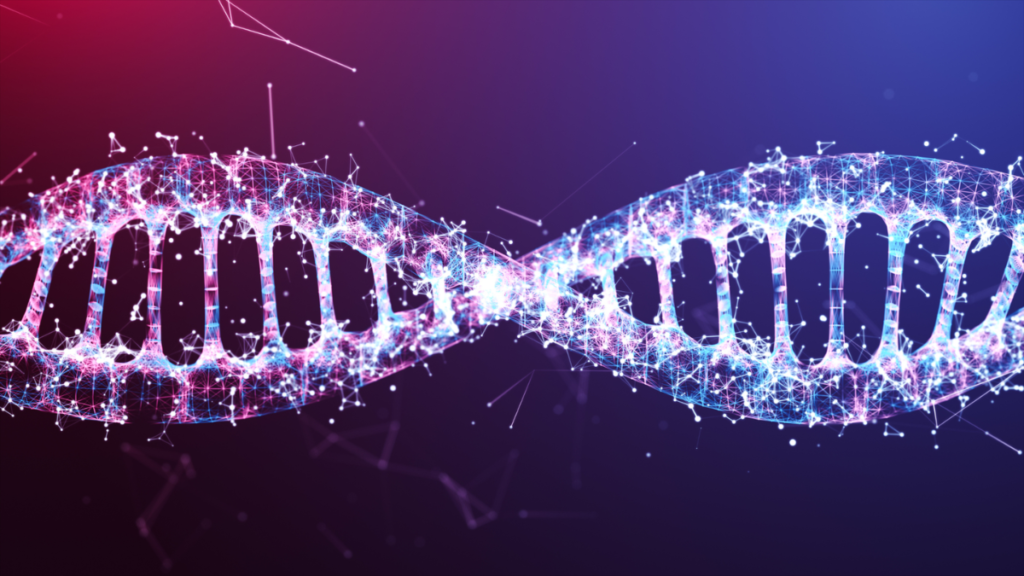Genetic mutations have long captured the imagination of scientists and researchers, as they hold the key to understanding the complexities of life itself. These mutations, which are alterations in the DNA sequence, can lead to a wide range of effects, from subtle changes in physical traits to the development of life-threatening diseases. In this article, we will delve into the world of genetic mutations, unraveling their mysteries and exploring their profound implications.
Understanding genetic mutations
To comprehend the significance of genetic mutations, we first need to understand the structure and function of DNA. DNA, or deoxyribonucleic acid, is the blueprint of life. It contains the instructions that guide the development and functioning of living organisms. Genetic mutations occur when changes or mistakes happen in the DNA sequence. These changes can be caused by a variety of factors, including exposure to certain chemicals or radiation, errors during DNA replication, or even spontaneously.
Types of genetic mutations
Genetic mutations can manifest in various forms, each with its own characteristics and consequences. One type of mutation is a point mutation, which involves the alteration of a single nucleotide base pair. Point mutations can further be categorized into three subtypes: substitutions, insertions, and deletions. Another type of mutation is a frameshift mutation, where the addition or deletion of nucleotide bases disrupts the reading frame of the DNA sequence. Additionally, there are chromosomal mutations, which involve changes in the structure or number of chromosomes. These mutations can have significant effects on an organism’s development and health.
Causes of genetic mutations
Genetic mutations can be caused by a multitude of factors, both internal and external. Some mutations are inherited from parents, passed down through generations. Others arise spontaneously during DNA replication or as a result of exposure to environmental factors, such as radiation or certain chemicals. In some cases, mutations can be induced deliberately in the laboratory for research purposes. Understanding the causes of genetic mutations is crucial for developing strategies to prevent or mitigate their negative effects.
Common genetic mutations in humans
While genetic mutations can occur in any living organism, humans are particularly susceptible to certain types of mutations. Some of the most common genetic mutations in humans include those associated with blood disorders like sickle cell anemia and hemophilia, as well as genetic variations that contribute to conditions like cystic fibrosis and Huntington’s disease. These mutations can have a profound impact on individuals and their families, often requiring specialized medical care and support.
Genetic mutations and inherited diseases
Inherited diseases, also known as genetic disorders, are conditions that result from specific mutations passed down through generations. These mutations can be present in the DNA of either one or both parents, and can manifest in a wide range of symptoms and severity. Some inherited diseases are caused by mutations in a single gene, while others are the result of multiple genetic factors interacting with each other and the environment. Understanding the relationship between genetic mutations and inherited diseases is instrumental in developing diagnostic tools, treatments, and preventive measures.
Genetic mutations and cancer
Cancer is a complex and multifaceted disease that can be influenced by genetic mutations. Mutations in certain genes, known as oncogenes, can promote the uncontrolled growth and division of cells, leading to the development of tumors. Additionally, mutations in tumor suppressor genes, which typically regulate cell growth and prevent the formation of tumors, can disable their normal function, allowing cancer cells to proliferate. Understanding the role of genetic mutations in cancer development is critical for advancing our knowledge of the disease and developing targeted therapies.
Genetic testing and genetic mutations
Advances in genetic testing technologies have revolutionized our ability to detect and diagnose genetic mutations. Genetic tests can analyze an individual’s DNA for specific mutations, providing valuable information about their risk of developing certain diseases or passing on genetic disorders to their offspring. These tests can also help guide treatment decisions, as certain genetic mutations can influence an individual’s response to specific medications. However, genetic testing also raises important ethical considerations, such as privacy concerns and the potential for discrimination based on genetic information.
Ethical considerations in genetic mutation research
The field of genetic mutation research is not without its ethical dilemmas. As scientists continue to uncover the intricacies of the human genome, questions arise about the appropriate use and dissemination of this knowledge. Issues such as genetic privacy, consent, and the potential for eugenics must be carefully considered. Striking a balance between scientific progress and ethical responsibility is crucial to ensure that genetic mutation research benefits society as a whole.
Conclusion: The future of genetic mutation research
The study of genetic mutations is a dynamic and rapidly evolving field. As technology advances and our understanding deepens, we can expect to uncover even more fascinating insights into the role of genetic mutations in health and disease. With this knowledge comes the potential for groundbreaking treatments and preventive strategies. However, it is important to approach this research with careful consideration of the ethical implications. By doing so, we can unlock the full potential of genetic mutation research and improve the lives of individuals and communities alike.
FAQ’s
Q: What is a genetic mutation?
A: A genetic mutation is an alteration in the DNA sequence that can lead to changes in physical traits or the development of diseases.
Q: Can genetic mutations be inherited?
A: Yes, some genetic mutations can be inherited from parents and passed down through generations.
Q: Are all genetic mutations harmful?
A: Not all genetic mutations are harmful. Some mutations can have no noticeable effect, while others can even be beneficial.

